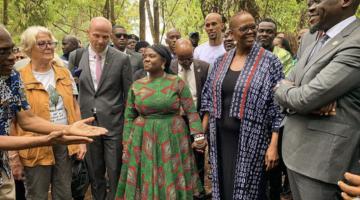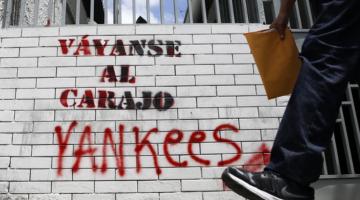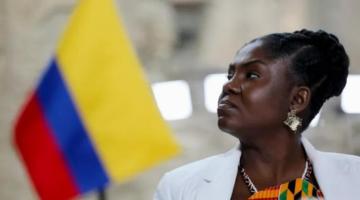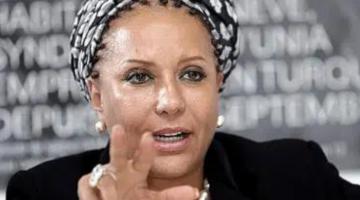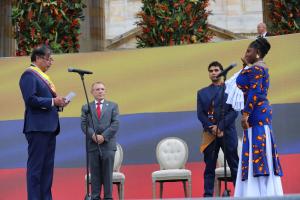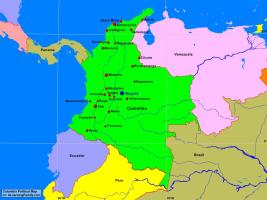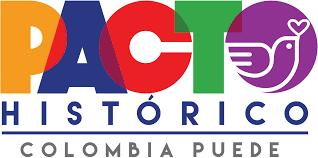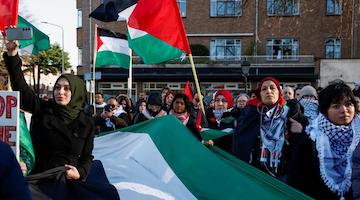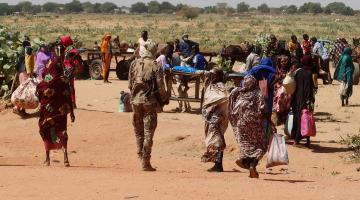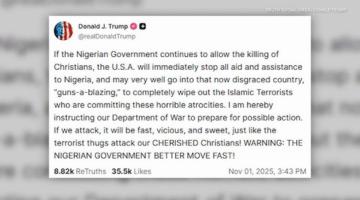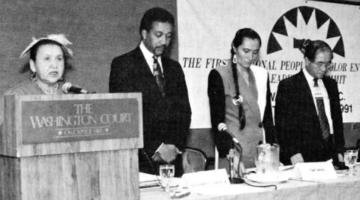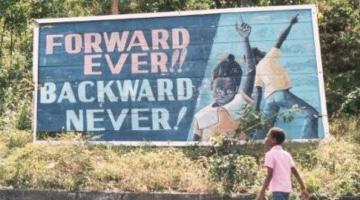Election delegation visits Casa Cultural del Chontaduro (Photo: Twitter @afro_resistance)
The author recounts her experiences as a member of an election delegation in Colombia which also made connections with African descended communities.
This article was originally published in the author's blog, The Last Dope Intellectual.
From May 26 through May 31, 2022 I was in Cali and Buenaventura, Colombia. I was invited by two organizations—AfroResistance, an international organization centered on the experience and knowledge of Black women and girls, and Grassroots Global Justice Alliance, an alliance of more than 60 organizations comprised of poor and working-class people of color with the goal of cultivating relationships, political education, and developing transformative leaders—to observe Colombia’s May 29 presidential elections. Our goal in participating in these election observations was to protect the rights of Black women in particular, ensure dignified spaces, and defend democracy and human rights expressed through the ability to freely cast votes without fear of violence, intimidation or retaliation.
Our delegation was historic and the first of its kind because it was all Black and racialized women/non-men. I can’t imagine a better group of women to have worked with. We came from a range of organizations like Black Alliance for Peace, Movement for Black Lives, Cite Black Women, and Mesita de la Memoria, and were all deeply committed to cultivating relationships with Black grassroots organizations in Colombia that serve and support Black women. Likewise, though we remained objective and non-partisan during our election observation duties, we were all unequivocally excited about the Vice-Presidential candidacy of Francia Marquez, the running mate of Gustavo Petro for Pacto Historico.
Cali and Buenaventura have some of the highest populations of Black people in the country, and these were the areas that tended to feel the effects of the decades-long war in Colombia most acutely. Buenaventura, which was described by one organizer as the laboratory for the violence and death that’s applied to other Blacks throughout Colombia and where, between 2000-2022, 3,014 Black people were murdered, has also been a site of protracted resistance over the past decade. In 2017, for example Black and indigenous folks from over 100 social organizations waged and won a 22-day strike. Similarly, in 2021, Cali was a hotbed of organized resistance and violent repression:
“On April 28, Colombians began a National Strike protesting the latest attempt at implementing a set of neoliberal policies. The proposed tax reform, which was withdrawn as a result of the protests, would have mainly hit the middle and lower classes. But this was just the tip of an iceberg of economic inequality, corruption, and human rights violations in the midst of a pandemic in which urban sectors feel more than ever the threat of economic precarity, unemployment, and further debt… The violent crackdown on protesters in urban centers is in some ways unprecedented. However, it also represents a regrettable acceleration of a form of warfare that indigenous and Black communities know all too well, but one that is quieter and just as deadly. State violence is a daily occurrence in rural areas and particularly in Black and indigenous territories. Moreover, political repression in Colombia, as in other postcolonial societies in the Americas, is mediated by centuries of race and racism.”
Given these dynamics, it was wonderful to see a population of Afro-Colombians who were not simply represented in service work but were rather living life in all sorts of ways. One of the highlights of this trip was visiting the Casa Cultural en Chontaduro where we engaged in an intergenerational conversation with local organizers, students, and community members. It was striking to hear them describe their material conditions because they were so similar to Blacks in the United States. The young peoples’ realities of being followed in stores because they were Black; having no Black teachers in higher education; feeling ashamed of their dark skin and being pressured to straighten their hair; and seeing little opportunity in their neighborhood were similar to those of students in my Black Studies courses. It was at Casa Cultural that these young folks gained pride in their Black/African heritage, worked to express themselves through writing, art, and culture work, and forged community amongst each other based on shared experiences and circumstances. Interestingly, we had been told that the neighborhood in which this community center was located was one of the most dangerous in Cali. (It was not lost on me that this is also the narrative of Black neighborhoods across the United States.) It was also an area that was deeply impacted by the decades-long war. It may be true that as outsiders, majority from the United States, that we had some protection, there wasn’t a moment in the Casa Cultural that I did not feel safe, welcomed, and deeply connected to the Afro-Colombians.
The day before we visited Casa Cultural, we participated in a grounding with several local Black women and queer organizations, including KiKimbé, on organization dedicated to providing support for Black women who had been previously incarcerated, and Colectiva TransEmPoderArte, a group of Trans and transitioning women who gather to share their different realities an experiences and who use art to make their voices and struggles visible. Here too it was striking to that the economic, political, and social issues facing Afro-Colombians are similar to Black folks in the United States and throughout the African Diaspora. This is no doubt resultant from imperialism, neocolonialism, and warmongering, though these are not the terms I heard from organizers here. Even the realities of marginalization of queer and trans folks in Black communities, to the point where they feel most compelled to start, and most safe in, their own organizations, was legible and familiar. The forms of dispossession and racist subjection seemed to be intensified in Colombia because of the recent history–and ongoing nature–of the war, but folks there, particularly women and minoritized genders, were finding ways to cultivate self-determination and autonomy. When a participant from our delegation asked how we could help and continue the work of the different organizations, they responded with the following:
-
Share their organizations and programs with people in the United States and beyond who can help and support
-
Provide economic support
-
Help them gain access to spaces for economic resources
-
Share facilitation, training tools, and healing tools
-
Link them with organizations doing similar work
Regarding my election observation in Buenaventura, the experience was both interesting and illuminating. On the one hand it felt a bit odd to be surveilling as an outsider when elections in my own country are rooted in disenfranchisement, injustice, and inconvenience. (To the latter point, Colombians vote on a Sunday when they are off work and the following Monday is a holiday.) On the other hand, I saw the necessity of it when, at our polling site at La Playita, the pollers attempted to turn away Maria Cristina, a Black transwoman voter. Our Mision de Observacion Electoral (MOE) representative intervened and Maria Cristina was ultimately able to vote. We were also able to point out several irregularities, including the lack of biometric equipment at many of the sites; the requisite number of pollsters (six) not being present at each table; voting sites being closed without notice; and the requisite juror table not being present. Likewise, I was jarred by the huge military and police presence at the polls, which seemed to be an intimidation tactic. At one of our sites, for example, as we were speaking to a community leader, a soldier stood very close to our circle and listened intently to the conversation. At that polling site, military personal were not only inside the polling place, but were also positioned outside roughly every three yards.
Our MOE observer let us know that the turnout was relatively low in Buenaventura; when there are local elections the lines are very long and you can barely walk through the neighborhoods. By contrast, only one of the eleven polling sites we visited had a line outside, and in most places the poll workers far outnumbered the voters. She thought that the pandemic, and perhaps the highly polarized nature of this election, may have impacted turnout. There was also the stark reality of intimidation, whereby paramilitary groups had lists of names of voters who, if they showed up to the polls, could be brutalized or disappeared. Despite all of this, the majority of people voting and working seemed overwhelmingly in support of Francia/Petro—though they could not state this outright.
In terms of the election outcome, the leftwing Pacto Historico received around 40.9% of the votes, with the two right-wing parties, Rodolfo Hernández’s Liga and Federico “Fico” Gutiérrez’s Equipo por Colombia receiving about 28.1% and 23.9%, respectively. Petro and Hernandez will thus face off in a second round of elections on June June 19th. I was disappointed that a runoff would take place instead of Petro (more accurately, Francia) winning outright. I was also surprised that Rodolfo Hernandez come out ahead of Fico since the latter had the unequivocal backing of the current regime and the establishment. Relatedly, it interesting but predictable that the rightwing immediately closed ranks, with Fico expressing support for Hernandez immediately after he acknowledged his defeat. Since May 29, there have been several reports of fraud and irregularities, especially on social media, with a particular focus on the amount of votes Hernandez received.
Overall, I am grateful that I had the opportunity to ground with Black grassroots organizations in Colombia, build with other members of the delegation, and observe these very important elections. My deep hope is that the next administration in Colombia will prioritize the socioeconomic wellbeing of the people generally, and Afro-Colombians particularly; reject US meddling and SOUTHCOM-supported militarization; and honor the 2016 peace accords and the special demands made by women and African and indigenous populations.
Dr. Charisse Burden-Stelly is Assistant Professor of Africana Studies and Political Science at Carleton College and Co-Coordinator of the Black Alliance for Peace Research & Political Education Team.



